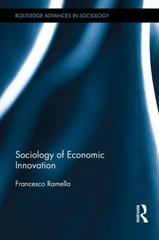Question
1) Describe the process of money multiplication. What is the role of the central bank and commercial banks in the process? 2) Through what instrument
1) Describe the process of money multiplication. What is the role of the central bank and commercial banks in the process? 2) Through what instrument does the central bank carry out monetary policy? How do the bank's actions transmit through the economy? (hint: think, for example, of an increase in the cash rate target - which parts of GDP are affected and why?) 3) Indicate whether the following statement is TRUE or FALSE and explain your answer: When confidence in the financial markets and economy increases period, banks tend to increase their reserve ratios and money multiplier. 4) MULTIPLE CHOICE (identify the one best answer below, and show/explain your calculations): Suppose $300 coming from a foreign country is deposited in a domestic bank. Assuming that the reserve ratio of banks is 20%, and that there are no leakages from the multiplication process (other than the reserves), the money supply in the economy increases by: a. An amount that is more than $1,000. b. An amount that is between $600 and $1000. c. An amount that is between $300 and $600. d. An amount that is less than $300. e. Money supply actually decreases, not increases. PART B (INDEPENDENT THINKING, REAL-WORLD APPLICATIONS AND REFLECTION) 5) (KEY QUESTION) The Biggish Business Bank (BBB) is the only bank in the country and its T-account is: ----------------------------------------------------------------------------------------------------------------------- Assets (in $) Liabilities (in $) ----------------------------------------------------------------------------------------------------------------------- Reserves 200 Deposits 800 Loans 500 Cash held in overseas banks 100 a. What is BBB's reserve ratio, and the implied money multiplier? Suppose a foreign depositor withdraws $50 from his BBB account and transfers the funds to her overseas account. b. What happens to BBB's reserve ratio? c. Assuming that BBB wants to keep its original reserve ratio, what two options does it have? (OPTIONAL ADDITIONAL QUESTION) How is the money supply affected in each case? (this last question is challenging so you can just think about it and try to share your thinking, but if you are struggling do not worry). Consider now that the T-account of BBB has changed to the following: ----------------------------------------------------------------------------------------------------------------------------- Assets (in $) Liabilities (in $) ----------------------------------------------------------------------------------------------------------------------------- Reserves 200 Deposits 800 Loans 400 Debt 200 Securities 500 Capital (owner's equity) 100 d. What is the leverage ratio? e. Suppose due to the mortgage crisis some people default on their loans, and their value on BBB's balance sheet thus decreases to 350. What happens to the leverage ratio? f. Continuing the previous part, now assume that due to pessimism we also see the securities' value decreasing to 400? What happens to the firm's capital? What are the consequences of this?
Step by Step Solution
There are 3 Steps involved in it
Step: 1

Get Instant Access to Expert-Tailored Solutions
See step-by-step solutions with expert insights and AI powered tools for academic success
Step: 2

Step: 3

Ace Your Homework with AI
Get the answers you need in no time with our AI-driven, step-by-step assistance
Get Started


